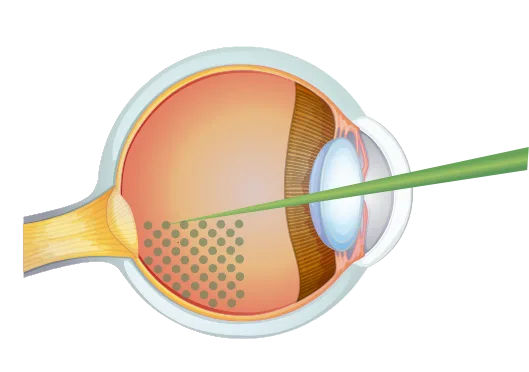
Age-related macular degeneration affects people over the age of 50. The dry form is the most common subtype, causing a gradual deterioration and distortion in central vision over many years in both eyes. The wet type causes bleeding in and around the macula and can result in a sudden loss of sight. As the dry subtype can progress to the wet type, regular assessments and self-monitoring are important. Each subtype of macular degeneration has its own treatment, which Dr Bhikoo can discuss with you.
Diabetic retinopathy is a complication experienced by people with diabetes. It occurs when the retina is damaged because of sustained blood sugar elevations. In addition to blurry central vision, leaky retinal blood vessels can cause floaters and retinal detachment from new blood vessels pulling on the retina. You can slow the progression of diabetic retinopathy by managing your diabetes, blood pressure and optimising your general health. The eye complications of diabetes can be treated with retinal laser, intraocular injections and surgery by Dr Bhikoo.
Occlusion of the retinal vein causes bleeding and swelling, resulting in painless loss of vision. Sometimes, blood leaks into the vitreous from abnormal retinal blood vessels, causing floaters. In order to manage retinal vein occlusions, we have to identify and manage the risk factors associated with this condition such as high blood pressure. A variety of ocular treatment options are available, including intraocular injections, retinal laser and surgery if required.
In central serous chorioretinopathy, there’s fluid build-up under the macula, which causes blurry or distorted vision. This usually affects one eye, but both can be affected. It’s more common among men in their 30s to 50s. Fluid levels usually settle on their own with expert observation. Some cases require laser treatment, including photodynamic therapy, which Dr Bhikoo can do.